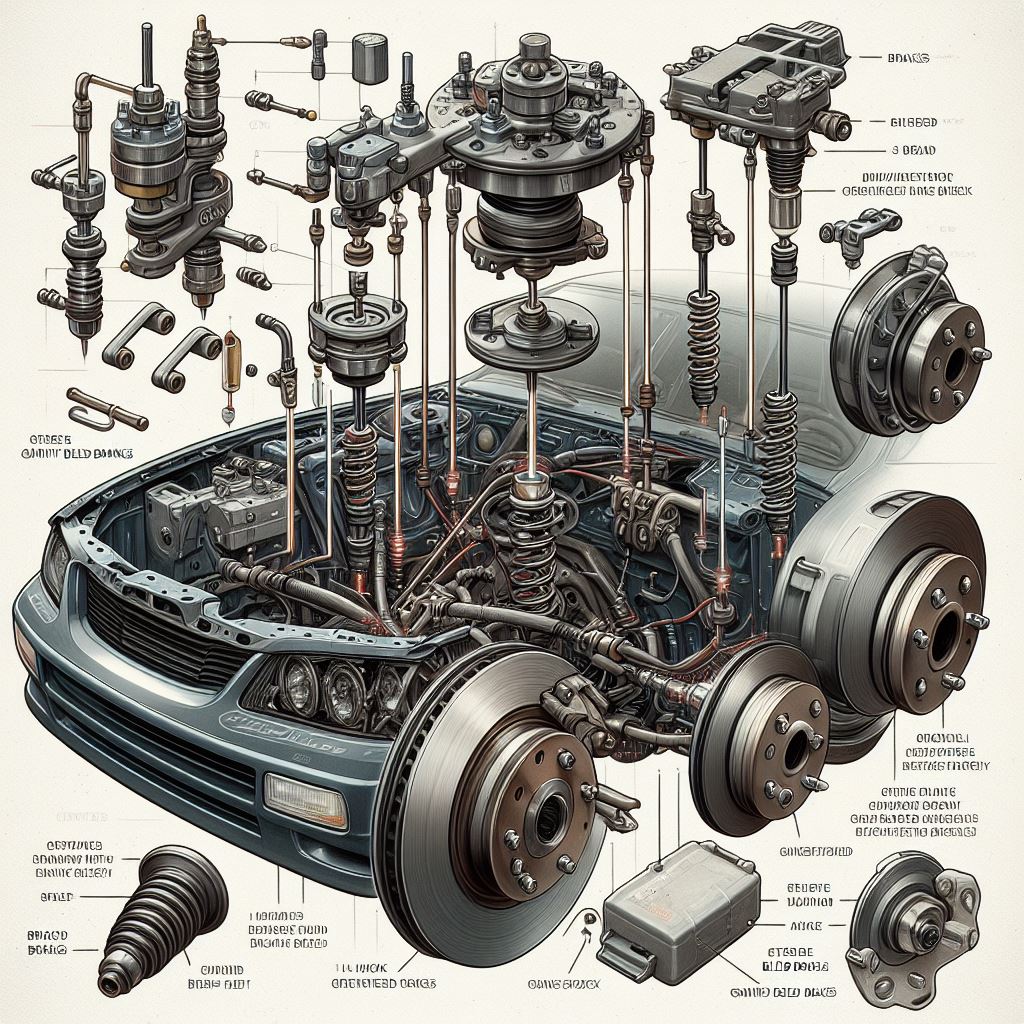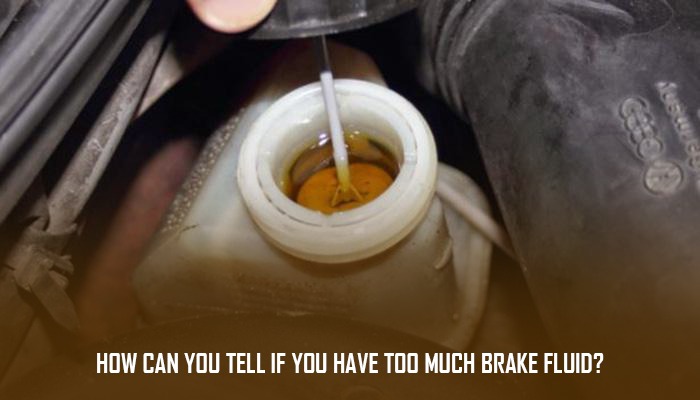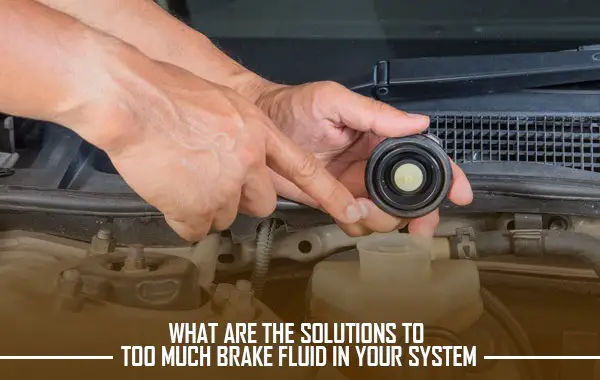How To Remove Too Much Brake Fluid And Avoid Costly Repairs
Overfilled brake fluid in your vehicle can create a mess and potentially lead to some costly repairs. Whether you’re a seasoned mechanic or a car enthusiast looking to expand your knowledge, learning how to remove excess brake fluid is a skill that can save you time, money, and hassle.
In this guide, we’ll walk you through the step-by-step process of safely removing too much brake fluid, helping you avoid unnecessary damage to your vehicle. By understanding this, you can ensure your car stays on the road and runs smoothly, saving you from any potential headaches down the line.
Table of Contents
Maintain Your Vehicle’s Stopping Power
Maintaining your vehicle’s stopping power is crucial for the safety of both you and other drivers on the road. Regularly checking and maintaining your brake system can prevent accidents and potentially save lives. Make sure to have your brake pads and rotors inspected at regular intervals, as they are designed to wear down over time and will eventually need to be replaced. Keep an eye out for warning signs such as squeaking or grinding noises when braking, a soft or spongy brake pedal, or a vibrating steering wheel, as these could indicate potential issues with your brakes.
It is also important to keep your brake fluid at the proper level and to have it flushed and replaced according to your vehicle’s maintenance schedule to ensure that your brakes are operating at their best. By staying proactive in maintaining your brake system, you can enjoy peace of mind knowing that your vehicle’s stopping power is always up to par.

The Importance of Healthy Brake Fluid
Brake fluid is a vital component of a vehicle’s braking system, often overlooked by car owners. Maintaining healthy brake fluid is crucial for ensuring the proper functioning of brakes and overall safety on the road. Over time, brake fluid can absorb moisture, which can lead to corrosion, reduced braking power, and even brake failure. Regularly checking and replacing brake fluid can help prevent these issues and prolong the life of the braking system.
Additionally, healthy brake fluid helps maintain the proper hydraulic pressure within the system, ensuring that the brakes respond quickly and efficiently when needed. Neglecting brake fluid maintenance can lead to costly repairs and compromise the safety of the vehicle and its passengers. Therefore, it is important for car owners to understand the significance of healthy brake fluid and prioritize its regular inspection and replacement as part of their vehicle maintenance routine.
Why You Should Change Brake Fluids
Changing brake fluids is essential for maintaining the safety and performance of your vehicle. Over time, brake fluids can become contaminated with moisture, leading to a decrease in their effectiveness. This can result in reduced braking performance and potentially dangerous situations on the road. By regularly changing your brake fluids, you can ensure that your braking system is working at its best, providing you with the ability to stop quickly and safely when needed.
Additionally, old brake fluids can cause damage to the internal components of your braking system, leading to costly repairs. By investing in the regular maintenance of your brake fluids, you can prevent these issues and extend the lifespan of your braking system. It is recommended to change brake fluids every 2 years or as specified by your vehicle’s manufacturer. By staying on top of this maintenance task, you can drive with confidence, knowing that your vehicle’s braking system is in optimal condition.
How can you tell if you have too much brake fluid?
If you have too much brake fluid, follow the steps above to remove it. Taking extra care is necessary when handling brake fluid, as it is a corrosive substance. Always consult your car’s manual before attempting any maintenance on your own.
There are a few telltale signs that you may have too much brake fluid in your car. One sign is decreased braking performance. If you notice that applying the brakes takes more force than usual, this may signal that there is too much brake fluid. Another sign is the overheating of the brakes. You’ll know if your brakes are overheating because they will start to smell like burning rubber, and you may also see smoke coming from them.
Finally, another indication of too much brake fluid is a steam jam. This happens when there’s so much steam built up from the excess heat that it prevents the brakes from working correctly. In case of any of these symptoms, you should immediately take your car in for service.

What are the causes of too much brake fluid?
Several reasons can cause you to have too much brake fluid in your car. One possibility is that you recently replaced your brake pads or shoes and didn’t completely bleed the system afterward. Air bubbles can form, which reduces the effectiveness of your brakes.
Another common reason for too much brake fluid is contamination. Brake fluid can contaminate rubber wear, copper wear, and other parts. In addition, this process can be accelerated if too much brake fluid is in the reservoir.
Overfilling the reservoir with brake fluid does not affect braking performance. Overfilling can prolong the life of the brakes by preventing corrosion from taking place. However, if you’re concerned about having too much brake fluid, you should probably drain it out.
How do you prevent too much brake fluid from causing brake failure?
Brake fluid is a hydraulic fluid that is used in the braking system to transfer force into pressure, and it is this pressure that activates the brakes. When there is too much brake fluid, it can cause the brakes to fail. There are a few ways to prevent this from happening.
First, make sure that you check your brake fluid level regularly and top it off as needed. Second, if your brakes are not working as well as they should be, visit a mechanic. Third, avoid using your brakes excessively or riding them hard. If you need to use them frequently, make sure to allow them to cool down in between uses so that the fluid doesn’t overheat and cause problems.
What are the effects of too much brake fluid on your brakes?
When you have too much brake liquid in your car, it can cause several problems. First, it can affect the way your brakes work. The extra fluid can cause the brakes to wear out faster or even stop working altogether. It can also lead to overheating the brakes and damaging the pads and rotors.
Finally, too much brake fluid can cause a condition called “brake fade.” This occurs when the brakes lose their effectiveness over time. Whenever this happens, you should adjust your brake fluid level again.
What are the solutions to too much brake fluid in your system?
First of all, you should check your brake fluid level. It’s vital to ensure you don’t have too much brake fluid. If you do, there are several ways to fix the issue. First, you can bleed the brakes. When the brakes are bled, trapped air in the system lowers the amount of brake fluid.
Second, you can add a brake reservoir spinner. This will increase the volume of the reservoir and help keep your brake fluid level low. Finally, you can adjust the temperature setting on your brake booster. This will allow you to control how much fluid is let out when you push the brake pedal.

How can too much brake fluid cause brake failure?
Hydraulic brake fluid is used to transfer force from the brake pedal to the brakes themselves. The brake pedal depresses the fluid, which is forced through a series of hoses and valves to apply pressure to the brakes, causing them to slow down or stop. If there is too much brake fluid in the system, it can cause brake failure. This is because the extra fluid can compress under high pressure, preventing the brakes from working properly.
The moment you notice your brakes are not working as well as they should, it is essential to check the fluid level in the system. You will need to bleed the brakes to remove the excess fluid if it is too high. The process can be carried out at home with the help of a friend or mechanic.
Frequently Asked Questions [FAQs]
1. How do I know how much brake fluid I need?
Check your vehicle’s owner’s manual – this will usually have the specific amount of brake fluid required for your make and model. If you’re unsure, ask a professional – they’ll be able to advise you on the right amount of brake fluid needed based on your car. Keep an eye on your levels – it’s always a good idea to check your brake fluid levels regularly to be safe. Then, you can top up if needed before it becomes a problem.
2. How much fluid should I remove?
The answer, of course, is “it depends.” If you have too much brake fluid, you’ll need to remove enough to bring the level down to the “full” line on the reservoir. But be careful not to remove too much. If you do, you could end up with not enough brake fluid and that could be a problem.
3. What is the purpose of brake fluid?
A brake fluid is a hydraulic fluid that helps transmit force from the brake pedal to the brakes. The main purpose of brake fluid is to create the necessary pressure to activate the brakes. Without brake fluid, your brakes would not be able to function properly.
4. Are there any risks associated with removing too much brake fluid?
The risk of removing too much brake fluid from your car’s braking system depends on how much you remove. If you remove too much, then there will not be enough for your brakes to work correctly. If you remove too little, your brakes will be harder to push.
Conclusion
Now that you know how to safely remove brake fluid, in case it gets low, just remember the steps mentioned above. Keep the car well-maintained and avoid parking in a place where it gets hot. The fluid can expand if not handled properly, which can lead to expensive repairs like changing your brake pads or discs.
In addition to removing excess fluid, check other warning signs such as squeaking brakes and a rusty disc. If any trouble symptoms persist despite proper care of your car, take it for an inspection first before making costly repairs.
